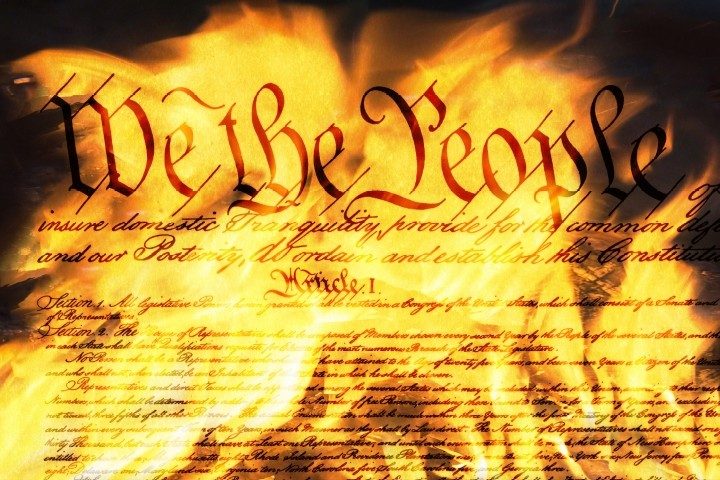
The House Oversight Committee recently passed H.R. 51. By way of this bill, House Democrats seek to make Washington, D.C., a state, which would clearly help Democrats in their unfettered quest for power and control. As reported by Fox News:
The bill calls for shrinking the independent district serving as the nation’s capital, while turning the surrounding area into a new state to be known as the State of Washington, Douglass Commonwealth, after abolitionist Frederick Douglass.
Fortunately, while the full House is expected to vote on the bill next week, the legislation is likely to face serious legal challenges. More particularly, while Democrats are trying to create a new state out of the District of Columbia by way of legislation, the proper procedure to accomplish this is by way of a constitutional amendment, which is highly improbable in this case.
Pursuant to Article I, Section 8, Clause 17, the District of Columbia is the “Seat of Government,” and Congress has “exclusive authority” to enact legislation for its governance. However, this “exclusive authority” does not mean that Congress may unilaterally create a “new” state by way of legislation, as such a move would impact the entire nation (not just the individual federal enclave). As reported by Breitbart, “Our nation’s capital was always meant to be unique. The founders wanted it to be a federal district, existing beyond the confines or influence of any one state.”
The 23rd Amendment of the U.S. Constitution specifically states:
Section 1
The District constituting the seat of Government of the United States shall appoint in such manner as the Congress may direct:
A number of electors of President and Vice President equal to the whole number of Senators and Representatives in Congress to which the District would be entitled if it were a State, but in no event more than the least populous State; they shall be in addition to those appointed by the States, but they shall be considered, for the purposes of the election of President and Vice President, to be electors appointed by a State; and they shall meet in the District and perform such duties as provided by the twelfth article of amendment.
Section 2
The Congress shall have power to enforce this article by appropriate legislation.
In addition, Article I, Section 2 of the Constitution states:
The House of Representatives shall be composed of members chosen every second year by the people of the several states, and the electors in each state shall have the qualifications requisite for electors of the most numerous branch of the state legislature.
Together, the language in the 23rd Amendments and Article I, Section 2 suggest that representation in Congress requires statehood. Stated differently, only states are entitled to congressional representation. Given that Washington, D.C., is not a state, it is not entitled to congressional representation without a constitutional amendment.
In 2007, the Office of Legal Counsel prepared a report in which it reached a similar conclusion, stating, “If the District is to be accorded congressional representation without statehood, it must be accomplished through a process that is consistent with our constitutional scheme, such as amendment as provided by Article V of the Constitution.” The report also referenced the case of Adams v. Clinton, stating:
In Adams v. Clinton, a three-judge court stated, in a decision affirmed by the Supreme Court, that “the Constitution does not contemplate that the District may serve as a state for purposes of the apportionment of congressional representatives” and stressed that Article I “makes clear just how deeply Congressional representation is tied to the structure of statehood.”
Despite these compelling arguments, H.R. 51 attempts to circumvent the constitutional requirements/process by way of creating a new state, reducing the size of the District of Columbia, and calling for “expedited consideration of a joint resolution repealing the Twenty-third Amendment to the Constitution.”
While there is no question about why Democrats want the District of Columbia to become a state, accomplishing this will not be easy. Assuming that a constitutional amendment is necessary, Article V first requires that two-thirds of both Houses of Congress agree that an amendment is necessary. Given the current composition of the House and Senate, the legislation faces an uphill battle. Furthermore, any proposed amendment must then be ratified by three-fourths of the states. This, too, is unlikely.
If, for some unknown reason, Congress passes H.R. 51 into law, legal challenges will certainly follow. As reported by Fox News, a letter signed by 22 attorneys general stated:
If this Congress passes and President Biden signs this Act into law, we will use every legal tool at our disposal to defend the United States Constitution and the rights of our states from this unlawful effort to provide statehood to the District of Columbia,
Accordingly, not only does Congress lack the authority to create an entirely new state out of the District, but it also does not have the authority to reduce the size of the District to the equivalent of a few federal buildings and surrounding parks.
Given the potential shift in power and control that such a move would inevitably create, Republicans must use all legal tools at their disposal to challenge this dangerous piece of legislation.




